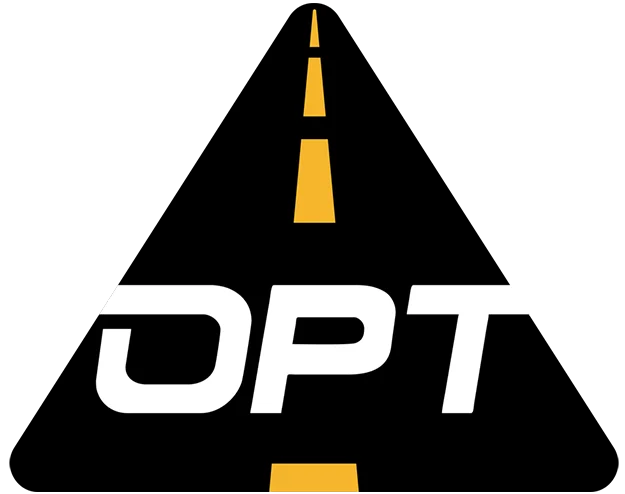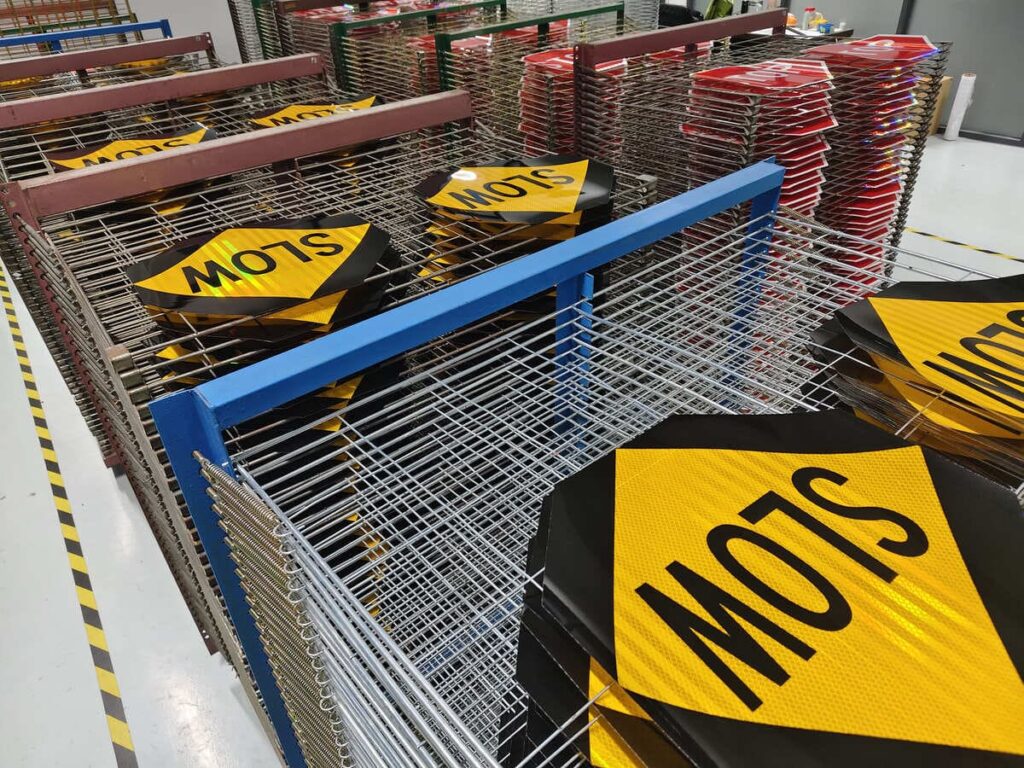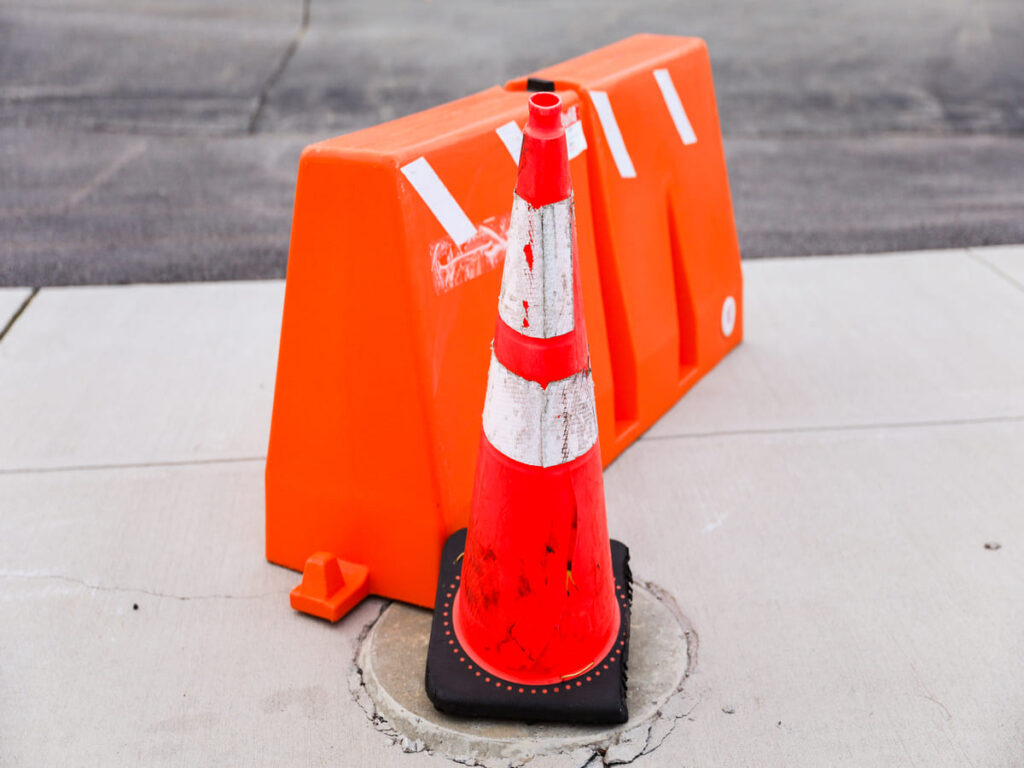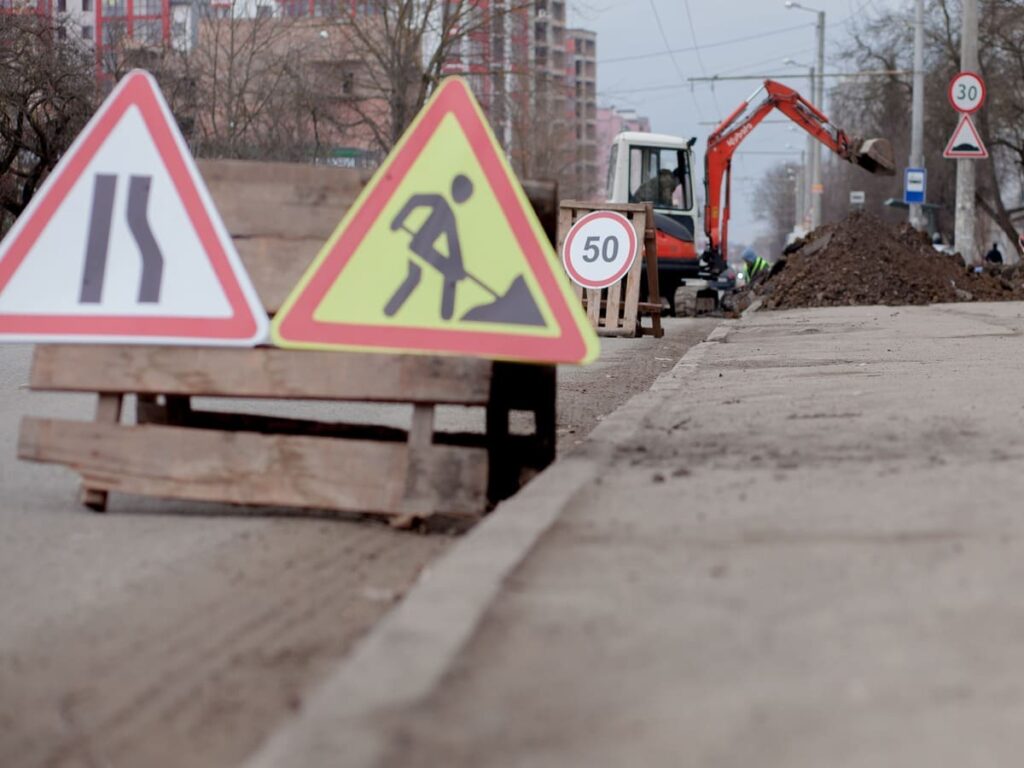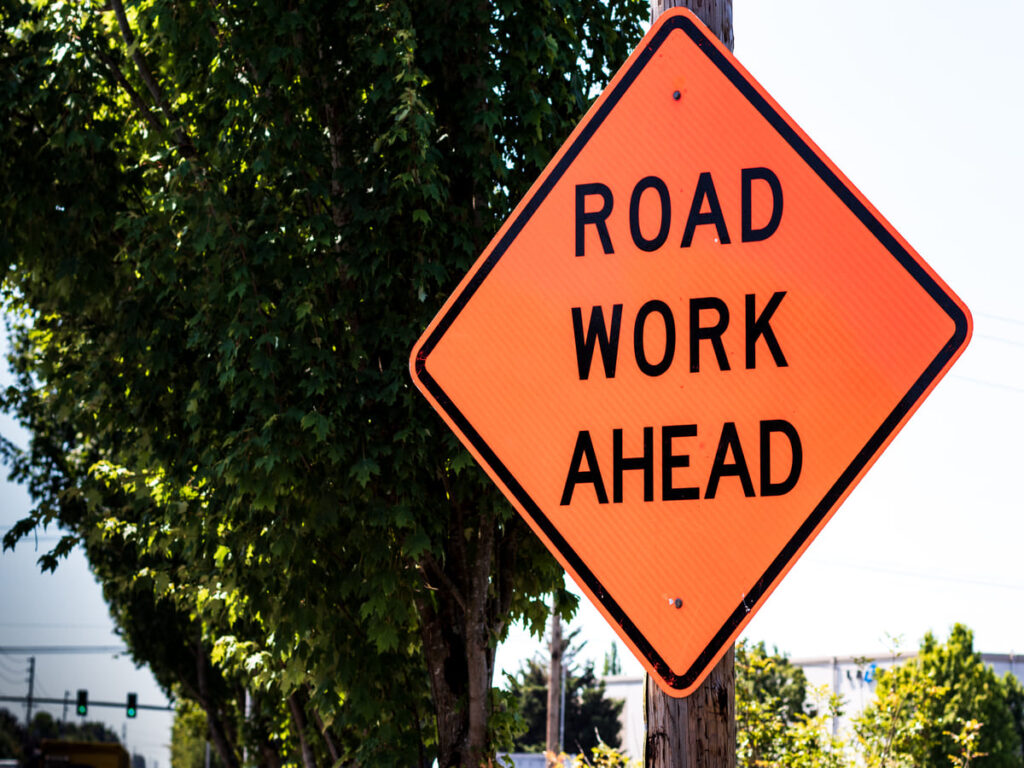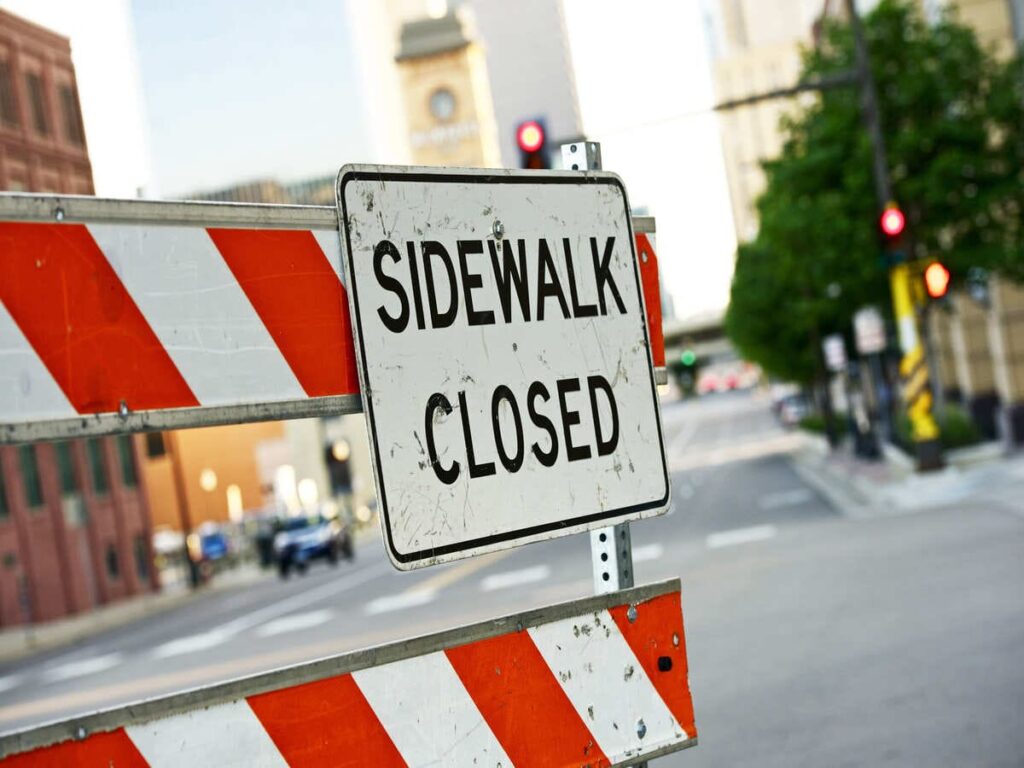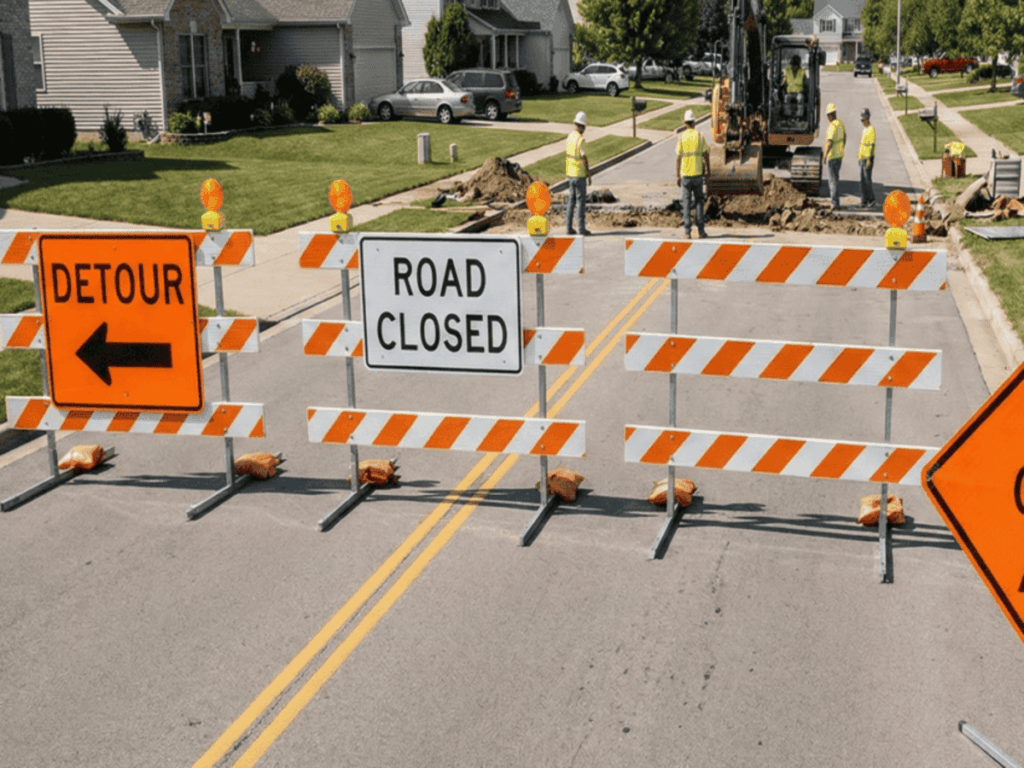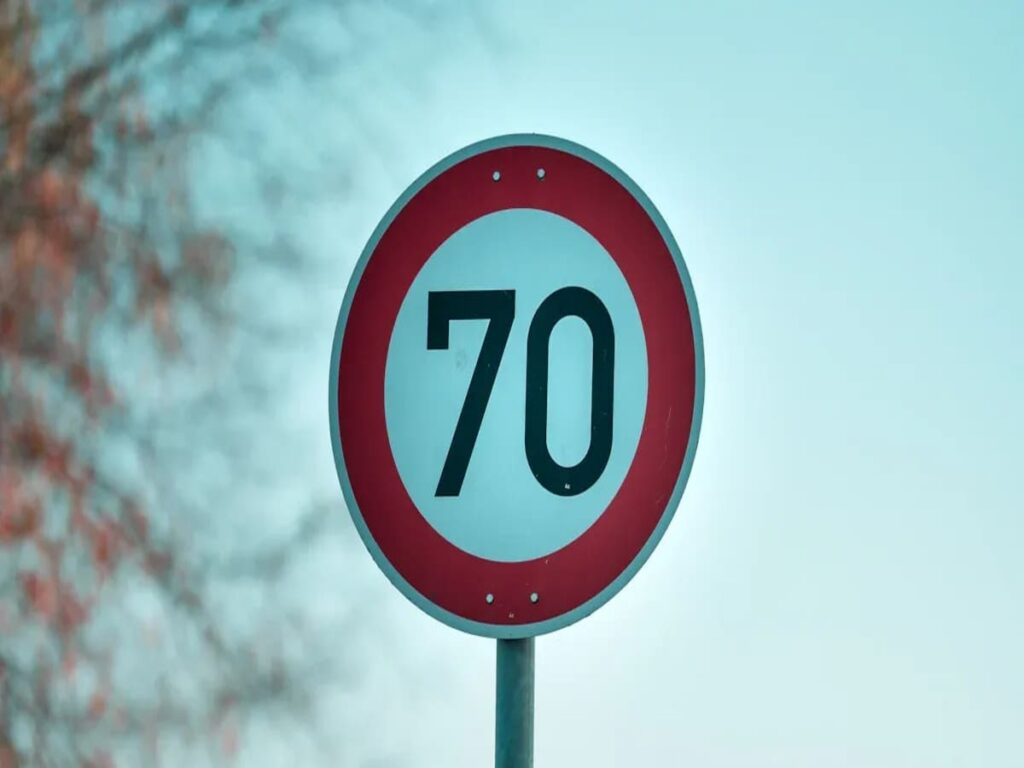
You see speed limit signs in the UK every time you drive. These signs tell you how fast you should go and help keep roads safe. Some drivers think the speed limits are too strict, while others believe they are not low enough for safety. This debate causes strong opinions and confusion for many people. You might wonder why these signs create so much frustration.
At OPTRAFFIC, we understand that traffic management goes beyond just setting speed limits; it’s about creating a safer environment for everyone. For traffic management companies in the UK, implementing clear, visible, and well-placed signs is crucial. Our solutions include obvious speed limit signs and advanced traffic control systems that help ensure safety without causing unnecessary delays. By choosing OPTRAFFIC, UK traffic management companies can make informed decisions about speed limits and other regulations, improving road safety and easing driver frustrations.
Key Takeaways
- Hidden speed limit signs can make drivers confused and upset. Drivers may get fines that are not fair. Always look to see if you can see the signs. This helps you avoid getting a penalty.
- It is important to know about maximum and minimum speed limits. If you mix them up, you might make mistakes. These mistakes can lead to fines.
- Smart motorways have signs that change with electronics. You must pay attention to these signs. This helps you follow the right speed limit.
- People have many different views about speed limits. Talking about these rules can help make roads safer.
- New things like smart signs and connected cars can help keep roads safe. Use these new tools to stay up to date.
Speed Limit Signs UK: Why Drivers Are Confused
You might think speed limit signs UK are easy to understand, but many drivers find them confusing. This confusion can lead to frustration, mistakes, and even fines. Let’s look at some of the main reasons why you and other drivers struggle with these signs.
Obscured and Poorly Maintained Signs
You may have seen speed limit signs hidden behind trees or bushes. When you cannot see a sign clearly, you might not know the correct speed for that road. In fact, 74% of drivers in the UK say they have seen speed limit signs uk blocked by foliage or dirt. This problem gets worse in summer when plants grow quickly.
Here are some real-life examples:
- A courier named Keith Peace received several speeding tickets because bushes covered the 50mph signs. He proved the signs were hidden and got his driving ban lifted.
- John Coombes had his speeding conviction overturned after a court found that an overgrown hedge blocked the speed limit sign, so he did not get enough warning.
You can see how poor road sign visibility can cause confusion and unfair penalties. Many drivers feel angry when they get fined for missing a sign they could not see.
“If you cannot see the speed limit signs uk, how can you follow the rules?” This is a common question from frustrated drivers.
Ambiguity on Rural and Urban Roads
You might drive through a village and see a sudden change in speed limits. Sometimes, the signs are not clear about which limit applies. Rural roads often use the ‘de-restricted’ sign, which means the national speed limit. However, this limit changes depending on the type of road and vehicle you drive. If you do not know the rules, you could make a mistake.
Many drivers also mix up minimum and maximum speed limit signs. You may focus on the maximum speed, but miss the minimum speed requirement. This confusion can lead to fines or unsafe driving.
Here are some common reasons for confusion:
- You might not understand the difference between ‘give way to oncoming traffic’ and ‘priority over oncoming traffic’ signs.
- The way speed limits are shown can be unclear, especially when they change for different vehicles.
During busy travel seasons, you may feel even more stressed. You want to follow the rules, but unclear speed limit signs uk make it hard.
Issues with Smart Motorway Signs
Smart motorways use electronic signs to control speed and lane closures. You might think these signs make driving safer, but many drivers report problems.
- On roads like the M6, M1, and A1(M), drivers have seen incorrect lane closures.
- Overhead signs can be hard to read, especially in bad weather or at night.
- Sometimes, the speed limits shown on gantries do not match the actual road conditions. This inconsistency makes you unsure about the correct speed.
When smart motorway signs do not work well, you may feel confused and worried about getting a ticket. Many drivers say they do not trust the speed limit signs uk on these roads.
If you travel during peak times, these issues can make your journey stressful. You want to stay safe and avoid fines, but unclear or faulty speed limit signs make it difficult.
Tip: Always check for changes in speed limit signs uk, especially on smart motorways and rural roads. Staying alert can help you avoid mistakes.
The Debate: Are UK Speed Limits Too High or Too Low?
Arguments for Raising Limits
Some people think speed limits should be higher. They say new cars and motorways are safer now. Other countries like France and Germany have higher limits. In the Netherlands, experts raised the motorway limit to 80mph. They studied it first and found no extra accidents. A poll showed 75% of people want the limit to be 80mph. You might think higher limits help you travel faster and feel less annoyed.
- Countries with higher speed limits set an example.
- New cars have better safety features.
- Most people want higher motorway speed limits.
Arguments for Lower Limits
Others believe speed limits should be lower. They say slower speeds make roads safer for everyone. Lower limits mean crashes are less serious. They also protect cyclists and people walking. About 70% of people in Britain want lower speeds in neighbourhoods. In Edinburgh, crashes dropped by 40% after lower limits started. The table below shows how lower limits helped cut accidents and injuries.
| Metric | Edinburgh Results | Belfast Results |
|---|---|---|
| Reduction in collisions | 40% fewer collisions (367 total) | 2% fewer casualties |
| Reduction in casualties | 409 fewer casualties (39% drop) | Small reductions |
| Reduction in fatalities | 23% fewer deaths | N/A |
| Reduction in serious injuries | 33% fewer serious injuries | N/A |
| Public support for speed limits | More support after changes | N/A |
Public and Political Controversies
Speed limits often cause big arguments. Most people, about 92%, think speed limits keep us safe. Some, especially younger drivers, do not think speeding is a crime. Many want stricter rules and tougher punishments for speeding. In Wales, the 20mph rule made many people angry. Nearly half a million signed a petition against it. Politicians worry about people getting upset and how rules affect drivers. People have very different views, so changes often cause problems.
Note: Speed limits matter to everyone, so your view is important in this debate.
Speed Limit Signs UK and Road Safety
Impact on Accident Rates
You see speed limit signs every day, but you might not realise how much they affect accident rates. When signs are hidden or hard to read, drivers can make mistakes. For example, one driver thought the limit was 60mph because he could not see the 50mph sign. He got a speeding ticket, but the judge agreed that poor sign visibility can lead to accidents. Clear signs help you know the right speed and keep everyone safe.
- Drivers often misinterpret speed limits when signs are obscured.
- Judges stress the need for visible signs to prevent crashes.
- Good sign visibility supports safer driving.
Speed cameras also play a big role. Studies show that speed cameras can reduce crashes by up to 39%. Road deaths drop by as much as 68% where cameras are used. You help improve road safety when you follow speed limits and pay attention to signs.
Effectiveness of 20mph Zones
Lower speed limits in busy areas make a big difference. In London, 20mph zones led to a 34% drop in serious injuries and deaths. Collisions fell by 35%, and fewer children died in accidents. You can see the results in the table below:
| Study Location | Reduction in Casualties | Reduction in Collisions |
|---|---|---|
| London (2009) | 41.9% | 37.5% |
| Nearby Roads | 8.0% | 7.4% |
You help protect children and pedestrians when you drive slower in these zones. The largest benefits appear for young people, with a 42% drop in serious injuries for ages 0-15.
Compliance and Enforcement Challenges
You might notice that not everyone follows speed limits. In 20mph zones, 76% of cars go too fast. On 30mph roads, 43% break the limit. Motorways see 44% of drivers speeding. Authorities face many challenges:
- Funding for enforcement is limited.
- Police and councils need better coordination.
- Many drivers think speed limits do not apply to them.
- More enforcement means more paperwork and appeals.
Speed cameras help, but they cannot solve every problem. You play a key part by respecting speed limits and helping make roads safer for everyone.
Technology and the Future of Speed Limit Signs
Smart and Dynamic Signage
New technology is changing speed limit signs on UK roads. Smart signs use screens to show speed limits that can change. These limits may change with traffic or weather. Modern cars use Road Sign Recognition to warn you about speed limits. Connected Vehicle Technology sends speed limit information straight to your car. Vehicle-to-Infrastructure systems send digital speed limits to vehicles. This helps you stay safe and avoid mistakes.
| Advancement Type | Description |
|---|---|
| Road Sign Recognition (RSR) | Warns you about speed limits and helps stop violations. |
| Connected Vehicle Technology | Sends speed limit updates to your car in real time. |
| Vehicle-to-Infrastructure (V2I) | Sends digital speed limits to vehicles for better awareness. |
These new tools help you react quickly when road conditions change.
GPS and Navigation App Challenges
You use GPS and navigation apps to find your way. These apps do not always show the right speed limit. Some apps are more accurate than others. In cities, people help keep speed limits up to date. Rural areas often do not update as fast. When speed limits change, apps can take time to update. This delay can confuse you and make you drive at the wrong speed.
Tip: Always look at roadside signs, even if your app shows a different speed limit. Technology helps, but it is not always correct.
Potential for Regional Speed Limits
You might think regional speed limits could make roads safer. Some experts say lowering the 60mph limit on rural roads could save lives. Average speed cameras have cut serious and fatal crashes by 36%. Many drivers already go slower than the posted limits on rural roads. Most people want lower speed limits and know speeding is risky. But just lowering limits does not mean everyone will follow them.
- Higher speeds cause more crashes.
- Average speed cameras cut serious accidents.
- Most people want lower speed limits.
- Following rules needs more than new signs.
Pilot programmes show good results. In Suffolk, crashes dropped by 20% after speed limits changed. In Scotland, serious or fatal accidents fell from 20% to 14%. You help make roads safer when you support these changes and follow the rules.
Evolving UK Speed Limit Policies
Balancing Safety and Efficiency
New ideas are changing speed limits in the UK. Leaders want roads to be safe and travel to be quick. The Road Safety Strategy tries to lower deaths and protect people. Soon, you might see some changes:
- Drivers aged 70 and older must take eyesight tests. They will need to check their eyes every three years.
- There will be tougher punishments for dangerous driving.
- The drink-drive limit will be lower, like Scotland’s rule of 50 milligrams per 100 millilitres of blood.
These changes are because of worrying numbers. In 2024, road accidents killed 1,633 people and hurt more than 128,000. Lowering the drink-drive limit could save lives, as alcohol causes many deaths each year.
The Role of Local Councils
Local councils help decide speed limits. They look at risks, how roads are built, and who uses them. Councils check accident records and the area around the road. They talk to people in the community and the police before making changes. This way, speed limits match what each place needs. Roads get safer when councils listen to local people.
- Councils study crash history and road design.
- They work with police and local people for advice.
- Limits must suit the road’s use and features.
Towards Smarter Road Regulation
You can help make roads safer in the future. Smart cities use new technology to control traffic and keep people healthy. Digital signs and smart cars help you know the right speed. Many experts say the UK should talk more about speed limits. You can share your ideas and help make roads safer and better for drivers. Your opinion matters as the country moves towards smarter and fairer rules.
Note: You make roads safer by learning more and joining local talks.
You face many challenges with speed limit signs in the UK. Confusing signs, changing rules, and strong opinions make driving harder. You must think about safety and how fast you travel.
- Clear signs help you avoid mistakes.
- Smart technology can improve road safety.
- Local voices shape future policies.
What do you believe should change about speed limits? Share your thoughts and help build safer roads for everyone.
FAQ
Is there a 90 mph speed limit in the UK?
No, there is no 90 mph speed limit in the UK. The national speed limit on most motorways and dual carriageways is 70 mph. However, certain stretches of road or specific zones may have lower limits for safety reasons. Speed limits higher than 70 mph are not legally permitted in the UK.
How to tell speed limit without signs in the UK?
In the UK, default speed limits apply in the absence of specific speed limit signs:
- 30 mph in built-up areas (unless otherwise specified).
- 60 mph on single carriageway roads.
- 70 mph on motorways and dual carriageways.
However, drivers should always be alert for signs indicating changes in speed limits, as these can vary depending on local conditions or temporary restrictions.
What should you do if you cannot see a speed limit sign?
You should slow down and look for the next visible sign. If you feel unsure, follow the general speed rules for that type of road. Staying alert helps you avoid mistakes.
Why do speed limits change in different areas?
Speed limits change to match road safety needs. You see lower limits near schools or busy streets. Higher limits appear on motorways. These changes help protect drivers, cyclists, and pedestrians.
Why is the UK speed limit 70 mph?
The 70 mph speed limit was introduced in 1965 as a national speed limit on motorways, intended to improve road safety and streamline traffic flow. This limit was based on the engineering and safety standards of the time. The speed limit has remained at 70 mph for motorways and dual carriageways, though there are calls for reviews in light of advancements in vehicle technology and road safety analysis. Speed limits are set based on road conditions, traffic safety, and environmental factors, balancing efficiency with the protection of road users.
How to purchase custom speed limit signs?
If you’re looking to purchase custom speed limit signs, the process is straightforward. Here are the steps:
- Choose Your Specifications: Decide on the size, material (e.g., aluminum, reflective), and design for your custom sign. You can choose specific colors, symbols, or additional text based on your requirements.
- Select a Vendor: Look for trusted suppliers that specialize in traffic signage. Many companies, including OPTRAFFIC, offer customizable signs and can assist with regulatory compliance.
- Provide Your Details: When ordering, provide the exact specifications of your custom speed limit sign, including the exact speed limit and any unique elements you want (e.g., a logo or custom font).
- Approval Process: Some vendors may require approval for compliance with local regulations before manufacturing the sign, ensuring it meets safety standards and traffic management guidelines.
- Place Your Order: Once you’ve confirmed the design and specifications, place your order and arrange for delivery and installation.
At OPTRAFFIC, we provide high-quality, customizable speed limit signs that comply with local regulations and enhance road safety. We offer easy online ordering, expert guidance, and fast delivery to ensure your signs are ready when you need them. Let us help you create the perfect speed limit sign for your needs!
